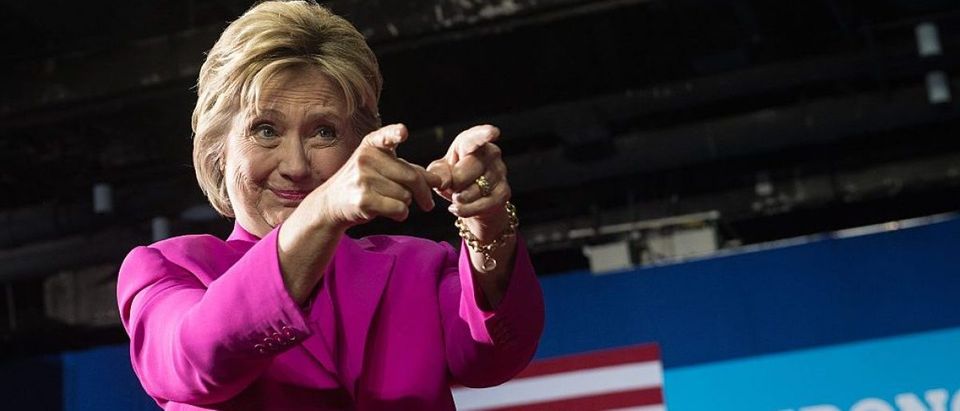In the wake of Bernie Sanders’ endorsement of Hillary Clinton, it seems, at last, that Hillary can claim legitimacy as the leader of the Democratic Party, consolidate her forces, and prepare for the long march against the ultimate foe in Donald Trump. After all, with the Democratic nomination on lock, and the final capitulation of the left-populist insurgency of Sanders, she should be ready to ride the support of women, minority, and educated voters to an electoral landslide in November that renews Obama’s mandate to govern the country.
But the relationship between the Democratic establishment and the various demographic groups it claims to tie together in an unstoppable coalition could hardly be worse. The coherence of the ideology that twice elected Barack Obama is almost at a breaking point. This is well illustrated by the publication of (and furious response to) a manifesto on Medium called “An Open Letter on Identity Politics, to and from the Left.” The document, written and signed by a group calling itself “We Are the Left,” is the product of the safe-spaces wing of the Democratic Party’s effort to brand anything other than their brand of identity politics — embodied in intersectional feminist slay queen Hillary Clinton — as sexist abuse.
Although a call for unity, #WeAreTheLeft exposes deep rifts in the left. Against the backdrop of the identity-politics-versus-class-relations dynamic that colored much of the race between Clinton and Sanders, the manifesto is essentially an admonition of leftists that, in one way or another, prefer the terms of class struggle over those of identity politics. With the sharp split in support of Clinton and Trump (and to some extent, Clinton and Sanders) between men and women, the 2016 election is starting to look “gendered” after all — gendered both literally and in a deeper structural sense.
Unfortunately for the Democrats, the ideological rifts now evident in the left are a very bad omen, exposing the contradictions in the entire big-tent Democratic Party ideology.
#WeAreTheLeft shows that words like intersectionality have gained traction and widespread acceptance in such a way that they are taken up by the ruling establishment, and stripped of any “revolutionary potential.” Thus, they appear to be petty and policing. These terms become their own opposites when they are crystallized in Tumblr politics — so instead of productively pointing to the avenues of oppression, they silence dissent on the toughest and most pressing issues of grotesque class inequality, ironically erasing their own Marxist origins. What’s left are the big words of Judith Butler — without her sharp intellectual rigor.
Paradoxically, the “Marxist” issues of class inequality are then more convincingly taken up by the protectionist Trump. And so, to many on the left, the vocabulary of activism has lost what was once affirmative and empowering — deployed to justify arbitrary power and oppression. They are no longer part of a rousing call to arms, but a sedative against the mean words, trauma, and abuse by the (always male) “BernieBros” and “Brocialists.” Both sides argue furiously over who is the more reactionary. For what it’s worth, they all are reactionary. This is hardly an indication of potent revolutionary rumblings from the left.
Clinton is still the favorite to win the election because of electoral politics and the prevailing demographic projections, but this is in spite of the fact that she is at the helm of an ideological structure in crisis, collapsing under the weight of its own contradictions. Sanders’ endorsement of Clinton did not take so long because of his delusional stubbornness, as the press would have us believe, but because the inevitable capitulation to her shameless doublethink would necessarily be embarrassing, and cast Sanders as a fraud. He knew that, but could do nothing else in the face of their common enemy, Donald Trump.
Trump is the most dangerous opponent to Clinton because he represents a complete denial of the terms of engagement that dictate polite politics. His combination of shock and entertainment, his prime showmanship expose the smug pomposity of the brand of identity politics taken up and hollowed out by Obama and Clinton. He is impossible to pin down because he is an absolute negation of the moralizing outrage-on-behalf-of-others that characterizes most political discourse on both the right and left.
Trump taps into a fundamental, yet often unspoken, antipathy to these attitudes — such that even those who otherwise would disagree with such racism and sexism support him enthusiastically. He brings many previous non-voters to the polling booths not because he is “a good candidate” or “has the best policies,” but because his campaign is an exercise in the negation of the validity of those expectations. After all, Clinton’s experience, her prime selling point, is one of gross corruption, incompetence, and mismanagement.
Clinton has defeated one ostensible revolutionary but faces another, more savvy and provocative one. The GOP has already imploded under their own post-Bush nonsense and contradictions to yield a historically familiar event — the union of the right wing with the iconoclastic tendencies of the revolutionary avant-garde.
Clinton’s struggle in this election is far more dire than it seems. Despite having the full support of “the establishment,” she has underperformed and mis-stepped at every turn. If Clinton is unable to keep her tenuous and unenthusiastic coalition together using the vestiges of Obama’s coalition, November will bring big surprises.


